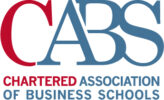FAQs: Funding for Focus Groups
These FAQs relate to our funding to explore the barriers, motivators, and enablers to engaging beyond academia. To find the full terms of this funding call, and details on how to apply, please see the dedicated web page.
Which institutions are eligible to receive the funding?
HE Institutions in England eligible to receive Research England funding. For a provider to be eligible for grant funding from Research England, the provider must be registered with the Office for Students (OfS) in the Approved (fee cap) category of the OfS’s register.
Who should the lead applicant be?
Lead applicants can be academics, researcher developers or other professional services staff responsible for supporting doctoral and early-career researchers.
Can I apply to run a focus group across a network of HE institutions?
Networks and consortia can support applications to run focus groups across a range of different HEIs, but each individual focus group must relate to a single HEI so that the data is institution-specific. The funding must also be transferred to a single HE institution.
Do I need ethics approval to run these focus groups?
The study has been reviewed by the University of Exeter Business School Research Ethics Committee and received a favourable review. The review reference is 8770117. The Business School Ethics Committee may be contacted by email via the Co-Director, Steven Boyne, S.Boyne@exeter.ac.uk, and Senior Research Ethics Officer, Dr. Ashley Luckman A.Luckman2@exeter.ac.uk.
Applicants to the fund should check with their own research ethics team whether they require any additional ethics approval internally. If you do need your own ethics application, please do reference the favourable review received by the project team.
How will applications be assessed?
The short application form asks questions about your motivation for running the focus group, as well as organisational and budgetary details. The selection panel will review applications and award funding based on the following standardised selection criteria:
- Overall credibility that the proposal will deliver on the objectives of the call, demonstrated via a robust plan to market, recruit to, and run the focus group.
- Suitability of the proposed host institution to broaden our evidence base due to its geographical location, type, and/or size.
Who should the focus group facilitators be?
Facilitators should be members of staff with prior experience of facilitating group discussions. If you intend to hire external facilitators, they should be experienced and fully briefed in advance. Lead applicants and facilitators (if appointed) will be required to attend a 1-hr information session about running the focus group. If facilitators have not been appointed by the time of the session, it is the responsibility of the lead applicant to ensure they are fully briefed prior to the focus group.
How do you recommend finding note takers for the group?
If you do not have capacity within your team, we suggest employing master’s or PhD students via your university’s short term student employment scheme. If this is not an option, please reach out to us to discuss alternative options.
How many staff members does running a focus group require?
Each individual group (of up to 10 participants) requires a facilitator and a note taker.
How soon after receiving the funding does the focus group need to take place?
Focus groups should take place as soon as reasonably possible after contracts are signed and the funding is received, ideally in June or July 2025, to enable the return of data to the DBAA project. If this is problematic for your institution due to the university break, please do not hesitate to contact us to discuss and/or let us know in your application when you expect to be able to run the group.
What type of recording equipment is required?
A Dictaphone/ recording device will be required for each table of up to ten participants. These should be placed in the centre of the table. DBAA have used the Sony UX570 Digital Voice Recorder and found this to be reliable. You should test the sound quality of the Dictaphone you plan to use prior to the focus group.
Can we cover travel expenses for participants? What about incentives?
Reasonable travel expenses can be covered for any participants whose normal place of work or study is not the university campus where the focus group is taking place. Reimbursement should comply with institutional policies and be paid via the usual process at your institution. If you have any doubts about this, please get in touch. Incentives in the form of vouchers can be covered for PGRs, if this is in line with your usual institutional policy and process, up to a value of £25 per participant. ECR participants cannot usually receive incentives as they are members of university staff. If your institutional policy is different, please contact us to discuss.
What reporting is required?
Focus group recordings, consent and EDI forms must be uploaded to a designated SharePoint folder as soon as possible after they take place – DBAA will share the link to this folder, which will only be accessible to the lead applicant or nominated individual, as well as the DBAA team. We also require a short financial report, detailing what the funding was spent on and whether any funds remain. A template will be provided, and any unspent funds will need to be returned to the DBAA project at the University of Exeter.
What are the arrangements for data ownership?
A data sharing agreement will be included in each legal agreement. The DBAA project, University of Exeter, will own the data generated during the focus groups so that the results can inform and be published as part of DBAA’s research and provision.
DBAA will share the final transcripts with the relevant lead applicant, once available, who will be able to use the results for academic and non-commercial research purposes.
Can data collected be used for research purposes, including publication?
You can use the transcript from your institution to inform your own practice at your own institution, without waiting for approval or prior publication from the DBAA team. Using this data as research data, including for publication, is subject to approval on a case-by-case basis by the DBAA project, as the data owners.
Why will the focus groups be recorded, rather than simply noted?
In our experience, recording the sessions captures the nuance of the discussion far better than just note taking. Since the analysis will be performed by the Exeter-based DBAA team, having an exact transcript will make this much more accurate.
Is the list of focus group questions available, and is there any possibility to add our own questions?
The list of focus group questions are already set, but not yet publicly available. These will be shared with successful applicants in their awardee pack. Since our focus group questions have already received ethics approval, nothing can be added to this set. However, if you wish to extend the session with those researchers in the room, we are happy for you to do so, and you would own any data from that later part of the session and would not have to share that data with the DBAA team (although of course we would be interested in hearing your findings!).
Is it possible to bring in external facilitators for these focus groups?
We are open to external facilitators being hired for these sessions, and paid for using this funding. However, this would not be co-ordinated centrally, and so would need to be done by the specific applicant universities. Furthermore, the cost of these external facilitators would need to be part of the costing of the application.
Could we run smaller groups at separate times? For example, three separate sessions of 10 participants each?
We would be happy to fund applications of this kind, as long as all of the focus groups were recruiting from the same institution, and that they would happen without extending the timeline too much.
Can employed members of University staff acting as facilitators and note takers be included in the budget for staff costs?
The staff costs are intended to cover the hire of external facilitators or note takers. This could include students hired as note takers but would not include members of university staff acting as either facilitators or note takers, unless paid cover was required for their substantive role (e.g. Teaching replacement), in which case this would need to be detailed in the application.



















